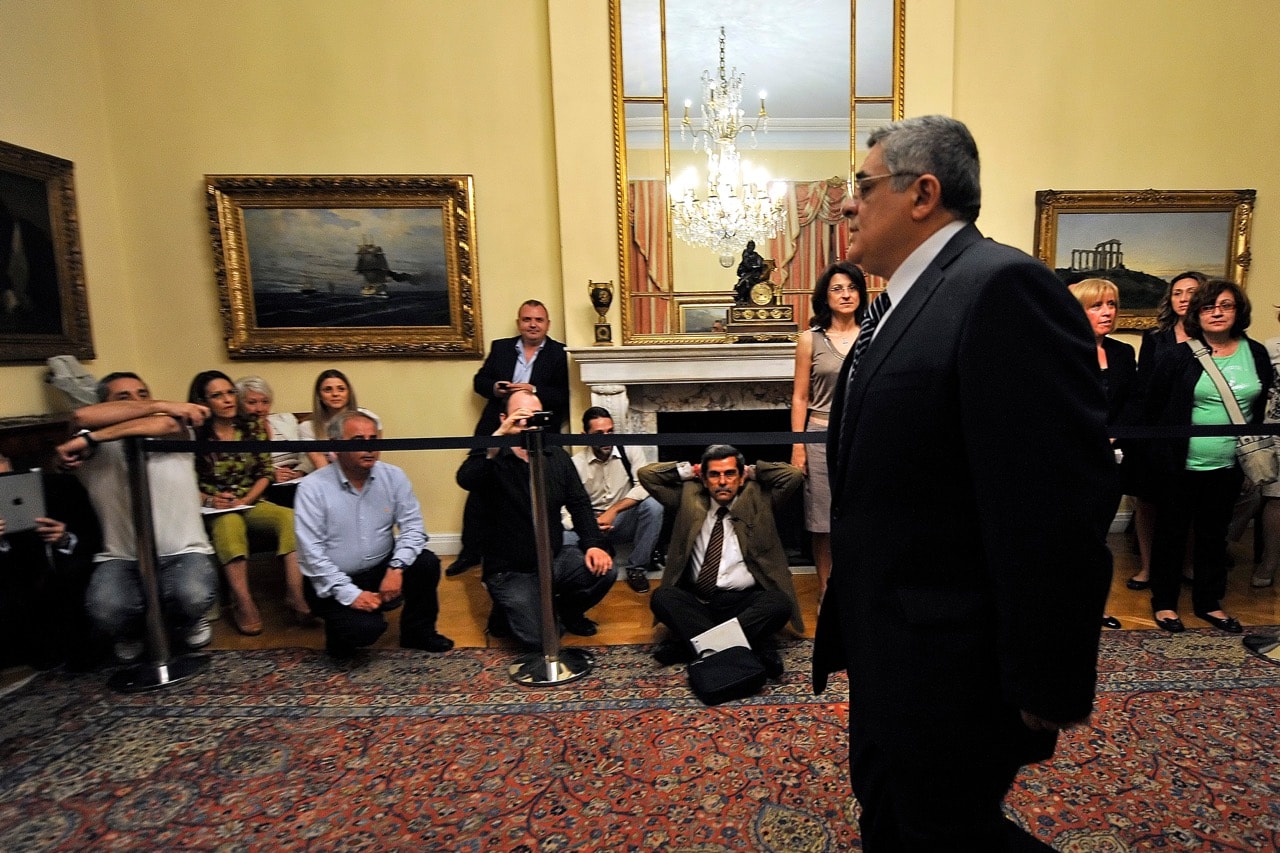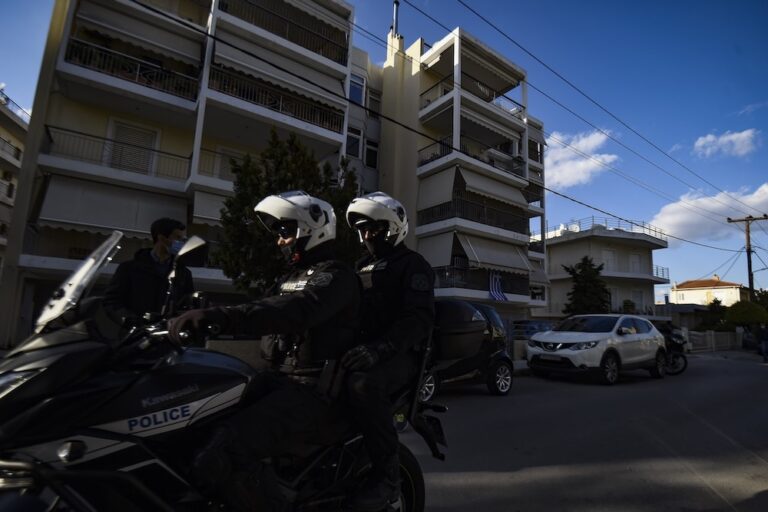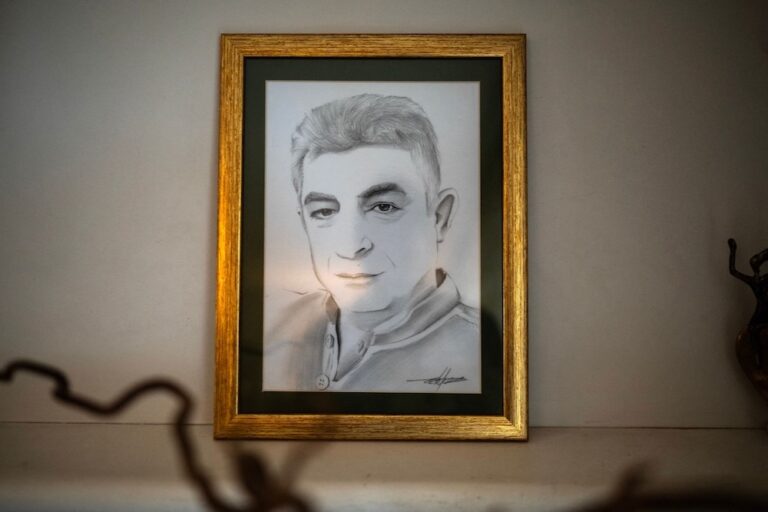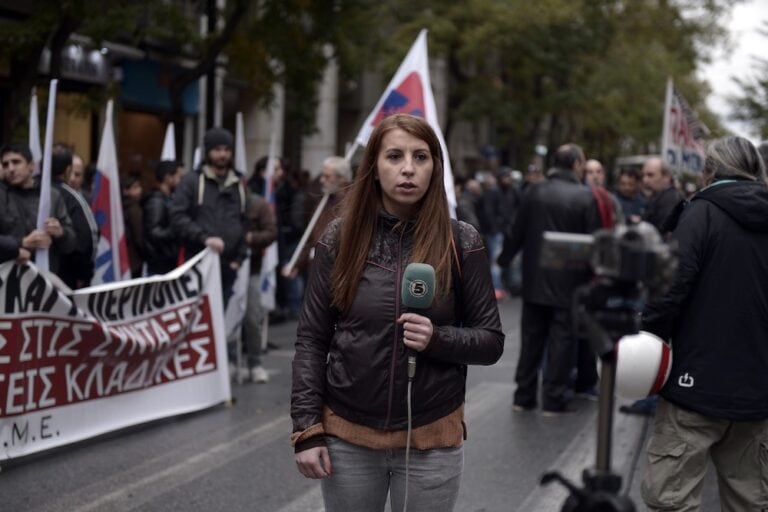Despite an ongoing trial that has sapped its popular appeal, members of the Greek press are still under pressure from neo-Nazi, far-right organisation Golden Dawn. Journalists have been targeted with libel charges and physical violence.
This statement was originally published on indexoncensorship.org on 15 December 2017.
Despite an ongoing trial that has sapped its popular appeal, members of the Greek press are still under pressure from neo-Nazi, far-right organisation Golden Dawn. Journalists have been targeted with libel charges and physical violence.
Two journalists working for the Ethnos newspaper, Maria Psara and Lefteris Bidelas, who revealed criminal activity associated with Golden Dawn, are facing a lawsuit demanding €300,000 ($352,377). The next hearing in the case, which was filed by Golden Dawn MP Ilias Kasidiaris, is scheduled for 14 December 2017.
“[Golden Dawn] are seeking our moral and economic extermination. They want us to stop writing,” Psara told Index on Censorship’s project Mapping Media Freedom, explaining that due to delays in the Greek legal system, these procedures normally may last for years, obliging journalists to spend days in courts.
The case stems from a physical assault on New Democracy MP Giorgos Koumoutsakos, which took place during a November 2015 protest in Athens, Psara and Bidelas explain. The perpetrators of the violence were allegedly a group of far-right supporters. In a news article about the incident, journalists Psara and Bidelas published an information coming from Koumoutsakos, that an eyewitness had called his office on that evening and had stated that he had heard Kasidiaris tell a man to attack Koumoutsakos. Further, according to the account, the witness said that Kasidiaris shouted “Finish! Finish!” to the group as they were assaulting Koumoutsakos.
According to Psara and Bidelas, they published what Koumoutsakos told them about the incident during a conference call with the CEO of the newspaper, following his report to the police. Kasidiaris denied the allegations and filed a libel suit, naming the journalists and the CEO of the newspaper as defendants.
Constant pressure
Psara and Bidelas told MMF that this is not the first time that far-right supporters have targeted them. Around ten lawsuits have been filed against them in criminal and civil courts. In another ongoing libel case against them a Greek police commander sued the journalists for publishing a September 2014 photograph of the officer sieg heiling in front of a Nazi train at the Nuremberg Transportation Museum. The journalists were found guilty in a civil case and charged with a fine of €3,000 ($3,525) each. An appeal is scheduled for February 2018.
“I began to cover Golden Dawn in 2012 when its chief, Nikos Michaloliakos, was elected a municipal councilor in the City of Athens,” Psara says, adding that the first time Golden Dawn reacted to a story of hers was in 2013. “It was a story about Golden Dawn members assaulting the actors of a play called Jesus Christ Super Star.”
The targeting of Bidelas began after the murder of the anti-fascist rapper Nikos Fyssas in 2013. Following an investigation into the murder, Michaloliakos along with several other Golden Dawn MPs and members were arrested and held in pre-trial detention on suspicion of forming a criminal organisation. The trial began on 20 April 2015 and is still ongoing.
At the time, Psara and Bidelas published articles that revealed the structure of Golden Dawn as well as the group’s racist and violent activities. Among their sources were ex-Golden Dawn members, which annoyed the organisation’s leadership. “They were calling at the newspaper to complain and insult us. Sometimes they even threatened us,” Bidelas says.
Golden Dawn’s popularity grew in the aftermath of the Greek financial crisis and the backlash created by the refugee crisis that swept Europe. The party managed to enter the Greek Parliament in 2012 with 21 seats, which emboldened them to openly attack the entire political system. Journalists became one of their main targets.
“Fear is a key element in the Golden Dawn ideology,” Psara told MMF. “They have attacked journalists physically, including during protests, as well taking legal action against them. The aim was to instil fear and stop any negative reports. In other words, they were abusing justice in order to serve their political interests.”
Over the last two years, examples of physical assaults against journalists and photographers have not been in short supply, as recorded by Index on Censorship’s Mapping Media Freedom project. Journalists covering the refugee crisis often fell victim to far-right attacks. In response to these co-ordinated attacks, many journalists began to develop a common front against Golden Dawn.
“We had the absolute support of the newspaper and, when we made public the threats we were receiving, the support of our Union (ESIEA),” Bidelas says. “The support of individual colleagues was also touching.”
“We are definitely not the only ones in this. Many other journalists who dared to reveal the real face of Golden Dawn have become targets,” Psara says. “But what must be stressed it that we won’t bow to this pressure.”



